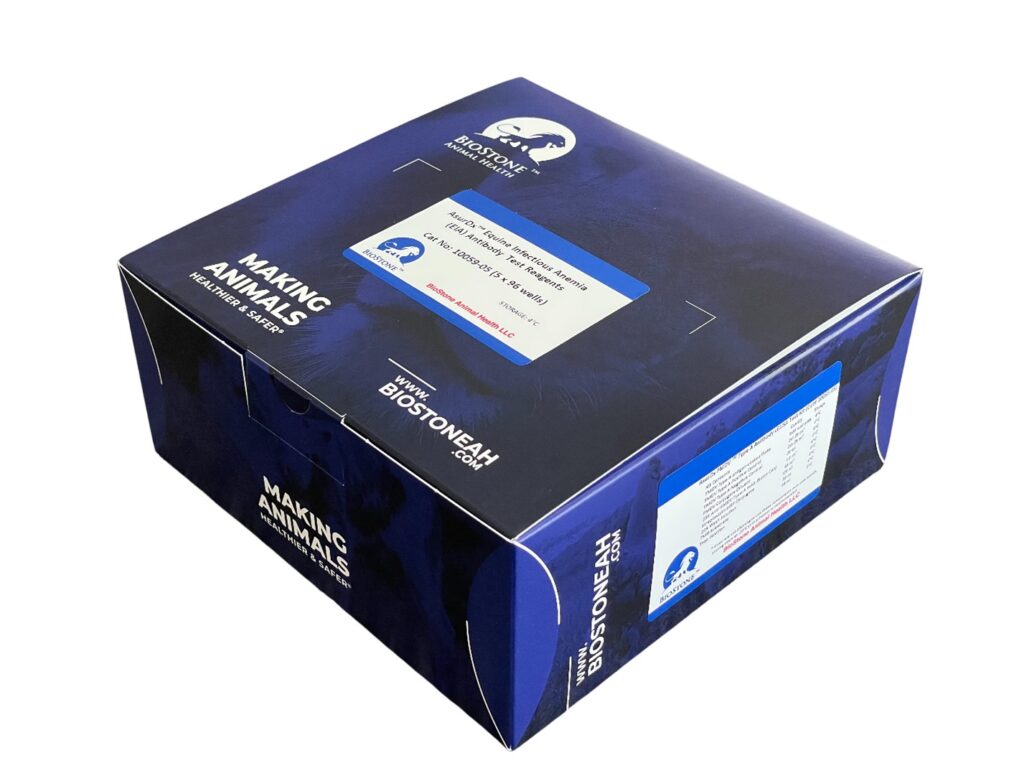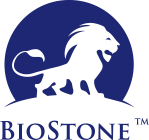BioStone > Products & Services > Animal Disease Diagnostic Kits > Equine Testing > ELISA Equine Testing > Equine Herpes Virus (EHV) Ab
AsurDx™ Equine Herpes Virus (EHV) Antibody Test
The AsurDxTM Equine Herpes Virus (EHV) Antibody Test Kit is designed for the detection of antibodies specific to Equine herpesvirus Equid alpha herpesvirus 1, also called Equine herpesvirus 1 (EHV-1). EHV-1 is a virus of the family Herpesviridae that causes abortion, respiratory disease and occasionally neonatal mortality in horses.

Feature
- Detects EHV antibodies of the IgG in horse serum/plasma;
- Procedures last less than 75 minutes;
- Provides a simple, rapid, sensitive and cost-effective enzyme-based immunoassay (ELISA) screening method
*Availability/Distribution: Product is designed and developed by BioStone US Texas headquarter and manufactured/assembled by BioStone oversea subsidiaries or partners. Currently, the product is only available outside of the USA. Regulatory requirements vary by oversea countries; the product may not be available in your geographic area.
Specification
| Method | Indirect ELISA |
| Coated Antigen | EHV antigen-coated Plate |
| Incubation Time | 45 minutes |
| Storage | At least 12 months |
| Specificity | EHV Type I serogroup-specific antibodies in horse serum/plasma |
Order Information
| Catalog Number | 10108-02 | 10108-05 |
| Plates | 2 plates | 5 plates |
| Reactions | 192 | 480 |
| Plate Format | 12 X 8-well strips | 12 X 8-well strips |
About Disease
The AsurDxTM Equine Herpes Virus (EHV) Antibody Test Kit is designed for the detection of antibodies specific Equine herpesvirus Equid alpha herpesvirus 1, also called Equine herpesvirus 1 (EHV-1). EHV-1 is a virus of the family Herpesviridae that causes abortion, respiratory disease and occasionally neonatal mortality in horses. Initial spread of EHV-1 by a newly introduced horse through direct and indirect contact can lead to abortion and perinatal infection in up to 70 percent of a previously unexposed herd. Signs that occur with EHV-1 may include decreased coordination, urine dribbling, fever, hind limb weakness, balance loss, and lethargy. Some horses may be asymptomatic upon infection increasing the difficulty in controlling the spread of the virus. Due to the virus being highly contagious, a common reservoir of the virus can include contaminated bedding. Although infected horses build some type of immunity through repeated exposure to the virus, there has been no evidence of adaptive immunity to provide protection against the most severe symptoms of EHV-1.
